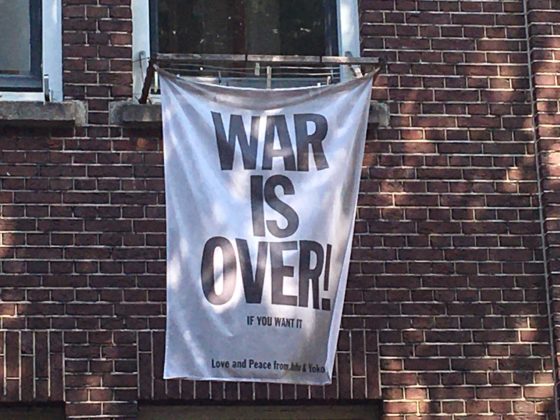Coronavirus in the Netherlands: what changes in June


The Netherlands takes a major step in easing its ‘intelligent’ lockdown on June 1 after previously relaxing some rules on May 11. Hygiene and social distancing rules will still apply, but here is a round-up of the main changes.
June 1
Cafes, bars and restaurants are allowed to open their doors and terraces, while keeping to the 1.5 metre rule and a reservation system. Staff must also check with guests that they do not have symptoms of coronavirus.
Cafes and restaurants may have 30 customers indoors, and no limits to terrace numbers as long as everyone is seated at a table and keeps 1.5 metres distance – unless they are members of the same family.
Cinemas, theatres and concert halls can reopen on a ticket-only basis and as long as no more than 30 people are in the audience.
Museums can open again, again on the basis of reservations, and while keeping to the 1.5 metre social distancing guidelines.
Visits to nursing homes and other institutional care homes are also being further relaxed.
Art and music schools may also reopen as long as they don’t admit more than 30 people and social distancing is observed.
Teenagers aged 13-18 will be able to play sports without keeping 1.5 metres distance from each other, but competitions are still banned.
Face masks
Face masks will be compulsory on public transport, and users should avoid using medically approved masks to ensure the health service is not disadvantages. People who don’t comply face a fine of €95 but officials have already said that issuing fines will not be a top priority.
Testing
Everyone who has symptoms of coronavirus will be able to have a test, without a doctor’s referral. There is capacity for up to 30,000 tests a day and officials expect the positive rate will be between 2% and 8%.
Local health boards will also start an intensive process of tracking and tracing the contacts of all new infections. People who have been in close contact with those who have been tested positive will be contacted and asked to spend 14 days in social isolation.
The government has also added the loss of smell or taste to the list of symptoms that may point to a coronavirus infection.
Help for businesses
A new package of help for businesses comes into effect on June 1. In particular companies will also be able to apply for up to €50,000 to pay fixed costs during the next four months.
The NOW subsidy to help companies pay wages will no longer be considered a subsidy if companies go on to sack staff, but the fine for doing so will be cut to 5%. Freelancers will also face checks on their partners income in order to qualify for help.
June 2
All secondary schools can open again as long as the 1.5 metre rule is observed. Pupils should walk or cycle to school, and special transport will be organised for those who live too far away. Nevertheless, most pupils will still only have one day of actual lessons in the classroom.
Special education schools will also reopen but maintaining a distance of 1.5 metres will require a tailored approach.
June 8
Primary schools will be able to open fully again, as long as the partial opening has not led to a boost in infections. Pre and after-school care will also start running normally again.
June 15
Trade schools, colleges and universities can reopen for practical lessons and exams.
July 1
Gyms and fitness centres, saunas and spas, clubhouses, casinos and amusement arcades will be able to reopen their doors, two months earlier than originally planned, if there has been no rise in the infection rate. A definite decision will be taken at the end of June.
September 1
The ban on festivals and large organised events is due to be lifted but the government has pledged to give an update prior to the deadline. Sex clubs will also be allowed to open from that date and sex workers will be able to start working again.
Thank you for donating to DutchNews.nl.
We could not provide the Dutch News service, and keep it free of charge, without the generous support of our readers. Your donations allow us to report on issues you tell us matter, and provide you with a summary of the most important Dutch news each day.
Make a donation